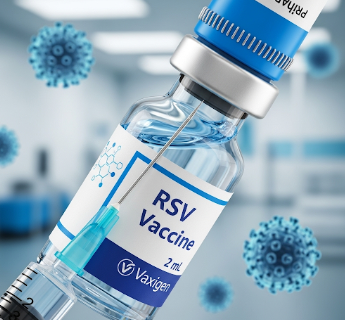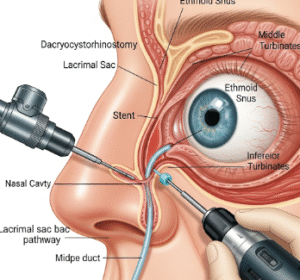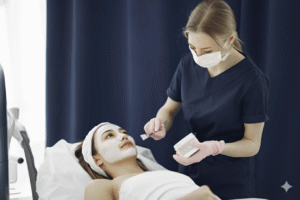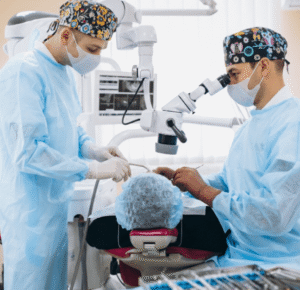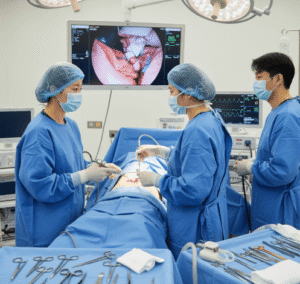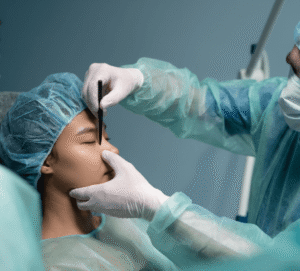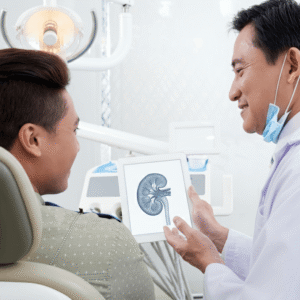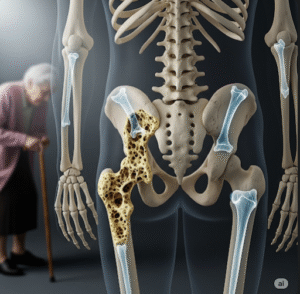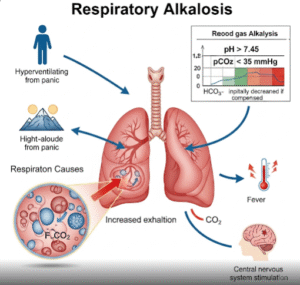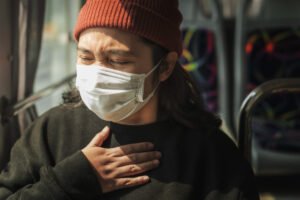What it is
The Respiratory Syncytial Virus (RSV) vaccine is a preventive immunization designed to protect against RSV infections, which are a major cause of respiratory illness in infants, young children, older adults, and people with weakened immune systems. RSV is highly contagious and can lead to bronchiolitis, pneumonia, and serious respiratory complications, particularly in vulnerable groups.
➡ Key highlights:
- ✔ First RSV vaccines were approved globally in 2023 for older adults and pregnant women
- ✔ Provides protection by stimulating the immune system to recognize RSV
- ✔ Especially important in infants, seniors, and people with chronic lung or heart disease
💡 In Korea, RSV prevention has gained significant focus due to seasonal outbreaks (especially in winter) and the growing availability of advanced vaccines in hospitals and vaccination clinics. Korea has adopted RSV vaccination for older adults and pregnant women and is steadily expanding its use in preventive health programs.
Why it’s done
Doctors recommend RSV vaccination for:
➤ Infants and young children (via maternal vaccination or antibody protection):
- Prevents severe RSV infection in babies under 6 months when pregnant mothers are vaccinated during the third trimester
➤ Older adults (≥60 years):
- Reduces risk of hospitalization, pneumonia, and complications
- Helps prevent severe outcomes in those with chronic obstructive pulmonary disease (COPD), asthma, or heart failure
➤ People with weakened immune systems:
- Cancer patients, transplant recipients, or those with chronic illnesses
Alternatives
Although the vaccine is the most effective prevention, alternatives include:
✔ Palivizumab (monoclonal antibody) – Used in high-risk infants to prevent RSV (monthly injections during RSV season)
✔ Nirsevimab (long-acting antibody) – Provides extended protection in infants and young children
✔ General preventive measures:
- Frequent handwashing
- Wearing masks in high-risk seasons
- Avoiding close contact with sick individuals
Preparation
Before receiving the RSV vaccine in Korea:
🔹 For adults (≥60 years):
- Consult doctor if you have immune disorders or chronic illnesses
- Review current medications (especially immunosuppressants)
🔹 For pregnant women:
- Vaccine usually given between 24–36 weeks of pregnancy
- Helps pass protective antibodies to the newborn
🔹 For all patients:
- No fasting required
- Inform healthcare provider of allergies or past vaccine reactions
How it’s done
➡ Step-by-step vaccination in Korea:
- Registration & consultation
- Patient visits hospital or certified vaccination clinic
- Medical history reviewed
- Vaccine administration
- Given as a single intramuscular injection (upper arm)
- Takes only a few minutes
- Observation period
- Patients monitored for 15–30 minutes for allergic reactions
- Post-vaccination care
- Resume normal activities
- Mild side effects (fever, soreness, fatigue) usually resolve in 1–2 days
Effectiveness & Duration
✔ Older adults: Strong protection against severe RSV for at least one RSV season (4–6 months)
✔ Pregnant women: Protects both mother and infant for the first 6 months of life
✔ Infants (via maternal vaccination): Significant reduction in RSV-related hospitalization
Recovery / Expected Outcomes
✔ Normal daily routine can be resumed immediately after vaccination
✔ Immunity develops within 2–4 weeks
✔ Expected benefits:
- Lower chance of hospitalization
- Protection from severe lower respiratory tract infection
- Reduced risk of RSV-related complications
Complications / Considerations
⚠ Common side effects:
- Injection site pain, redness, or swelling
- Headache, fatigue, mild fever
⚠ Rare but serious risks:
- Severe allergic reaction (anaphylaxis)
- Neurological side effects (extremely rare, under monitoring)
⚠ Special considerations:
- Not yet widely recommended for healthy children (under 2 years) except high-risk groups
- Cost may be higher compared to standard vaccines, since it is new
- In Korea, RSV vaccination is mainly focused on older adults and pregnant women, but high-risk children may also benefit from antibody therapy
Treatment Options in Korea (if RSV infection occurs despite vaccination)
🔹 Diagnosis
- Nasal swab or throat swab test for RSV
- Chest X-ray if pneumonia suspected
🔹 Medical treatments
- Supportive care (hydration, oxygen therapy, fever management)
- Antiviral research ongoing, but not yet standard
🔹 Hospital care
- Oxygen support for severe cases
- Ventilator support for critically ill infants or elderly patients
🔹 Rehabilitation & support
- Pulmonary rehabilitation for chronic lung disease patients post-RSV
- Preventive vaccination in subsequent years
Top Hospitals & Clinics in Korea for RSV Vaccination
🏥 Seoul National University Hospital (SNUH) – Leading in maternal vaccination programs
🏥 Samsung Medical Center – Specialized geriatric and infectious disease vaccination clinics
🏥 Asan Medical Center, Seoul – Comprehensive pediatric and adult vaccination services
🏥 Yonsei Severance Hospital – Strong focus on maternal and neonatal RSV prevention
Conclusion
The Respiratory Syncytial Virus (RSV) vaccine in Korea is a breakthrough in respiratory infection prevention, protecting infants, older adults, and high-risk patients from one of the most common and dangerous seasonal respiratory illnesses.
✔ Available at major hospitals and certified clinics
✔ Recommended for pregnant women (to protect newborns) and older adults (≥60 years)
✔ Helps reduce hospitalization rates and complications during RSV season
✔ Supported by Korea’s strong vaccination infrastructure and world-class hospitals
As RSV vaccines become more accessible, Korea is expected to expand coverage, ensuring broader protection against respiratory diseases and strengthening its reputation as a leader in preventive healthcare.

